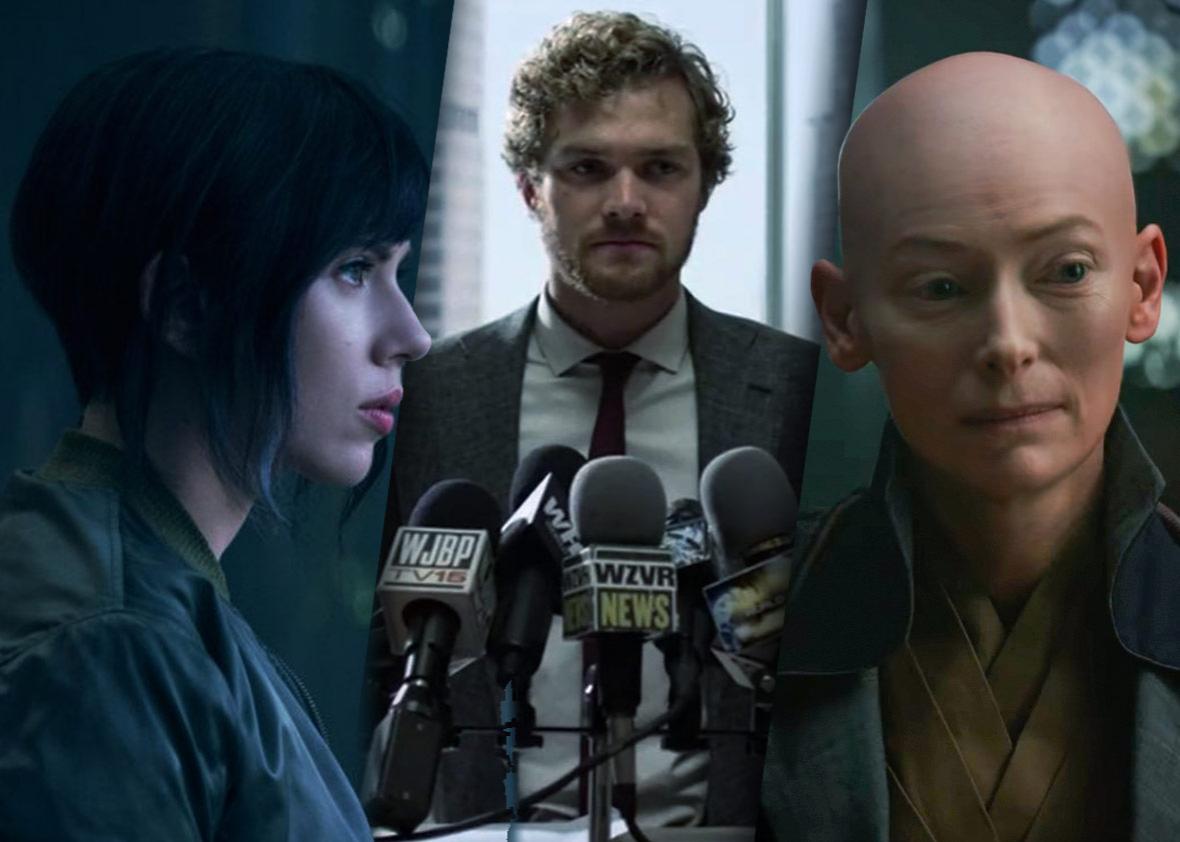Marvel’s Iron Fist premiered on Netflix last week, finally introducing the last member of the core cast of The Defenders, which debuts later this year. But the show’s arrival was overshadowed by controversy over casting English actor Finn Jones as Danny Rand, a superhero whose powers hinge on mastering kung fu and Asian mysticism—even after a passionate campaign for Netflix to cast an Asian American actor instead.
This is hardly the first time racially insensitive casting has dominated the conversation about a television show or movie’s debut—the upcomingThe Ghost in the Shell, an adaptation of the manga series by Masamune Shirow, has already been similarly lambasted for casting Scarlett Johansson as a character Japanese in both name and appearance. But what makes the saga of the Iron Fist controversy notable is the wide variety of excuses and explanations that Jones offered up in interviews to defend his casting, rather than just sticking to one. And while a publicist really should have intervened long before Jones got around to blaming the election for Iron Fist’s poor reception, the ordeal proved that stars are still strangely unprepared to have serious conversations about casting controversies, even when, in 2017, they should come to expect them as inevitable.
If Jones had been adequately prepared, for instance, he would already have known that none of his excuses was going to be effective, because, for the most part, we’ve already heard them before. And yet Jones isn’t an exception: Actors, directors, and studios keep dredging up these same failed talking points every time this happens, in spite of the fact that they almost always fan the flames instead of dousing the fire.
So, let’s say that you, like Jones, are an actor or filmmaker or studio head whose project has been called out as problematic. Maybe the complaints are perfectly justified. Maybe they’ve been blown out of proportion. Regardless, you now find yourself in the undesirable position of having to defend your casting/screenplay/direction to reporters and fans. Here are some of the tactics you’ll almost certainly turn to while trying justify your involvement—and more importantly, why they don’t convince anyone.
1. Blaming the Industry
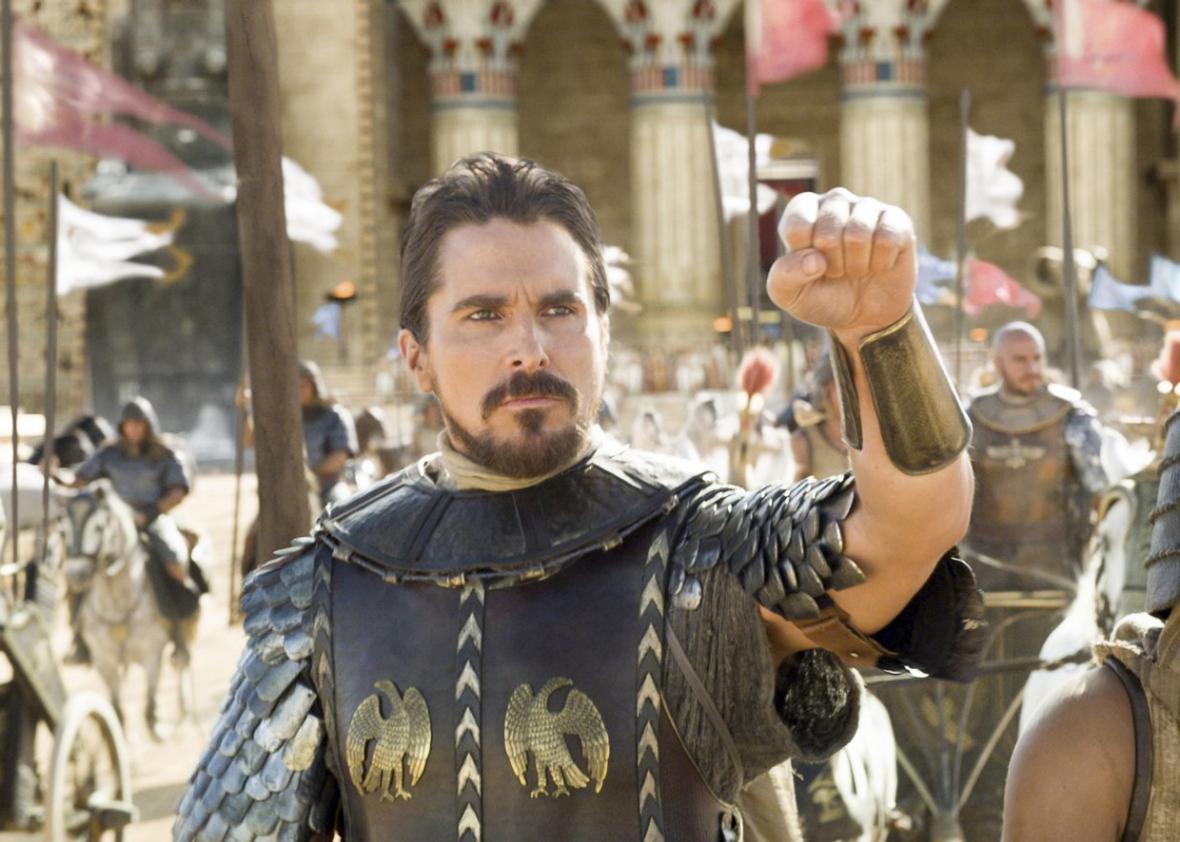
Twentieth Century Fox Film Corporation
The argument: It’s unfair for critics to call out your TV show/movie in particular for not casting actors of color, because lack of representation is an industry-wide problem. Besides, you really did want to hire an Asian or Middle Eastern or Native American actor, but the studio said you had to cast a big Hollywood star, and that means putting a Christian Bale or an Emma Stone in the lead.
Where we’ve heard it before:
- Ridley Scott justifying hiring white actors in Biblical epic Exodus: Gods and Kings (“I can’t mount a film of this budget, where I have to rely on tax rebates in Spain, and say that my lead actor is Mohammad so-and-so from such-and-such.”)
- Producer Dana Brunetti on whitewashing the real-life protagonists of 21 because no “bankable” Asian American actors were available
- Matt Damon defending his casting in The Great Wall from accusations he was playing a“white savior”: “I think there are two different conversations. There’s this movie and then there’s the much larger conversation [about diversity in Hollywood], which is a really important one.”
Why it isn’t convincing: It’s undeniably true that there is a widespread diversity problem in Hollywood, but expanding the conversation to the industry as a whole makes it look like you’re trying to wiggle out of any responsibility for your own part in said problem. The “bankability” excuse is a self-defeating one: Studios won’t risk casting Asian actors because they aren’t blockbuster movie stars, but Asian actors can’t become blockbuster movie stars because studios won’t risk casting them.
What’s more, as Fresh Off the Boat actress Constance Wu has pointed out, a big-name movie star is no guarantee of success, making it a poor excuse for not “risking” casting a lesser-known actor of color: “Why not try to be better?” she wrote in a post responding to Damon’s casting in The Great Wall. If white actors are forgiven for having a box-office failure once in a while, why can’t a [person of color] have one?” And diverse casts did not prevent—and quite arguably added to—the success of The Force Awakens or Creed or the Fast and the Furious franchise.
2. Misunderstanding the Criticism
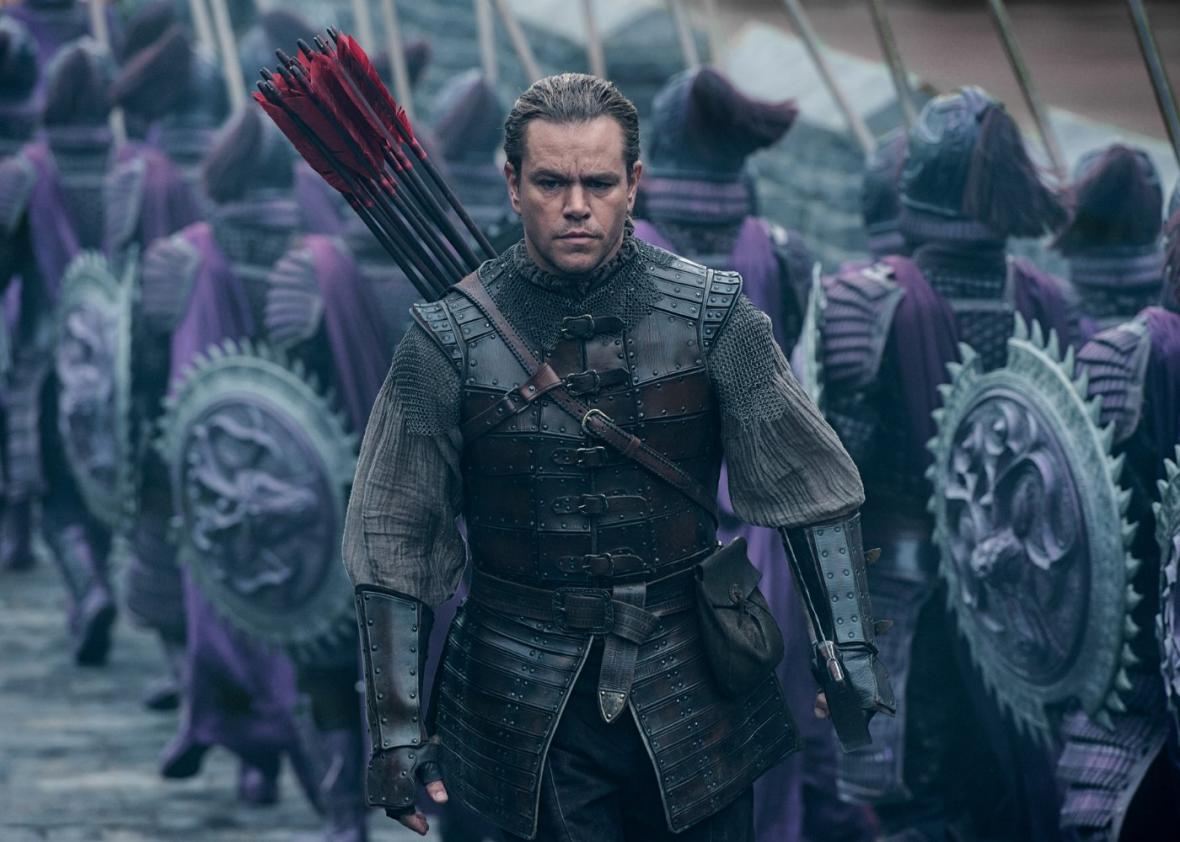
Universal Pictures
The argument: You are baffled by the outrage your movie has received, because, for whatever reason, you have fundamentally misinterpeted the cause of that outrage.
Where we’ve heard it before:
- Matt Damon took umbrage with the term whitewashing being used in connection to his role in The Great Wall, telling AP that he thinks of as Caucasian actors putting on makeup to appear to be of another race, like Chuck Connors in Geronimo. “I didn’t take a role away from a Chinese actor,” offered Damon. “It wasn’t altered because of me in any way.”
- In his apology for the controversy surrounding Aloha, Cameron Crowe focused solely on the casting of Emma Stone, who is white, as Allison Ng, a mixed-race woman who is white, Hawaiian, and Chinese. “The character was based on a real-life, red-headed local,” he wrote.
Why it isn’t convincing: If you don’t understand the issues at stake, then of course you won’t be able to adequately defend yourself against them. The criticism surrounding The Great Wall’s marketing campaign was never that Matt Damon was pretending to be Asian—that would be “yellowface.” Critics were responding to the insulting notion that a fundamentally Chinese story had to be centered around a white man for people to care about it (something which we’ve seen again and again). In the case of Aloha, Stone’s casting was just one part of a much larger problem, namely that the film seemed to be using Hawaii only for its exotic backdrop, while populating it almost entirely with white characters (something else we’ve seen again and again). It’s always a good idea to be fully informed before responding to criticism.
3. “Who Cares?”
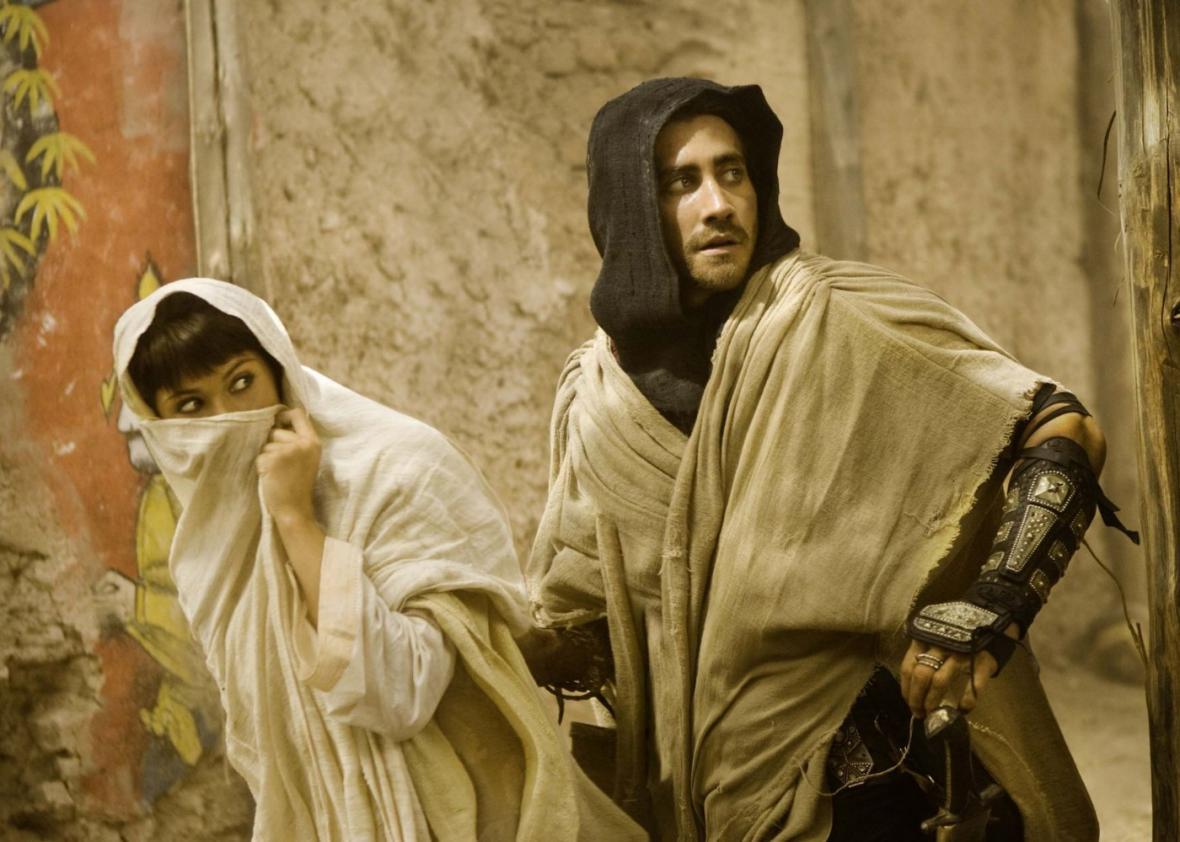
Andrew Cooper/Disney Enterprises, Inc.
The argument: All right, so your project, despite heavily incorporating Asian imagery or themes, has a white protagonist and maybe that isn’t great. But here’s the thing: Your movie is just that, a movie. What’s more, it’s a fantasy. Or science fiction. Or a superhero story. The point is, it’s not supposed to be 100 percent historically accurate. It seems ridiculous for people to be getting all worked up over who gets cast in a movie while there are children starving in Africa.
Where we’ve heard it before:
- Jake Gyllenhaal on being cast as the titular Prince of Persia: The Sands of Time instead of a Middle Eastern actor: “To me, it’s not something I gave a lot of thought because all of it is such a fantasy. It’s based on a video game, not something out of history. There’s nothing real about this. It’s just an adventure and it’s fun and it’s strange in a way to hold one part of it and say, ‘That’s not real or right.’”
- Finn Jones in Vulture: “C’mon, let’s get angry at the real fucking injustices in the world, yeah? The real problems in the world. Not just in television. There’s some real shit happening in the world right now that people need to get angry about. Let’s get angry about that. Not just a TV show that hasn’t even aired yet.”
Why it isn’t convincing: This whole argument is strange, because don’t you want people to care about your project? Didn’t you spend a significant amount of time and effort making it? Entertainment doesn’t have to be mindless, and it’s fallacious to suggest that someone can’t criticize a television show for some racially uncomfortable casting while also being aware of and angry at the many other horrible things going on in the world. And if you wanted to talk about those things instead, maaaybe you shouldn’t be doing an interview about the projects you just made.
4. Faux-Wokeness
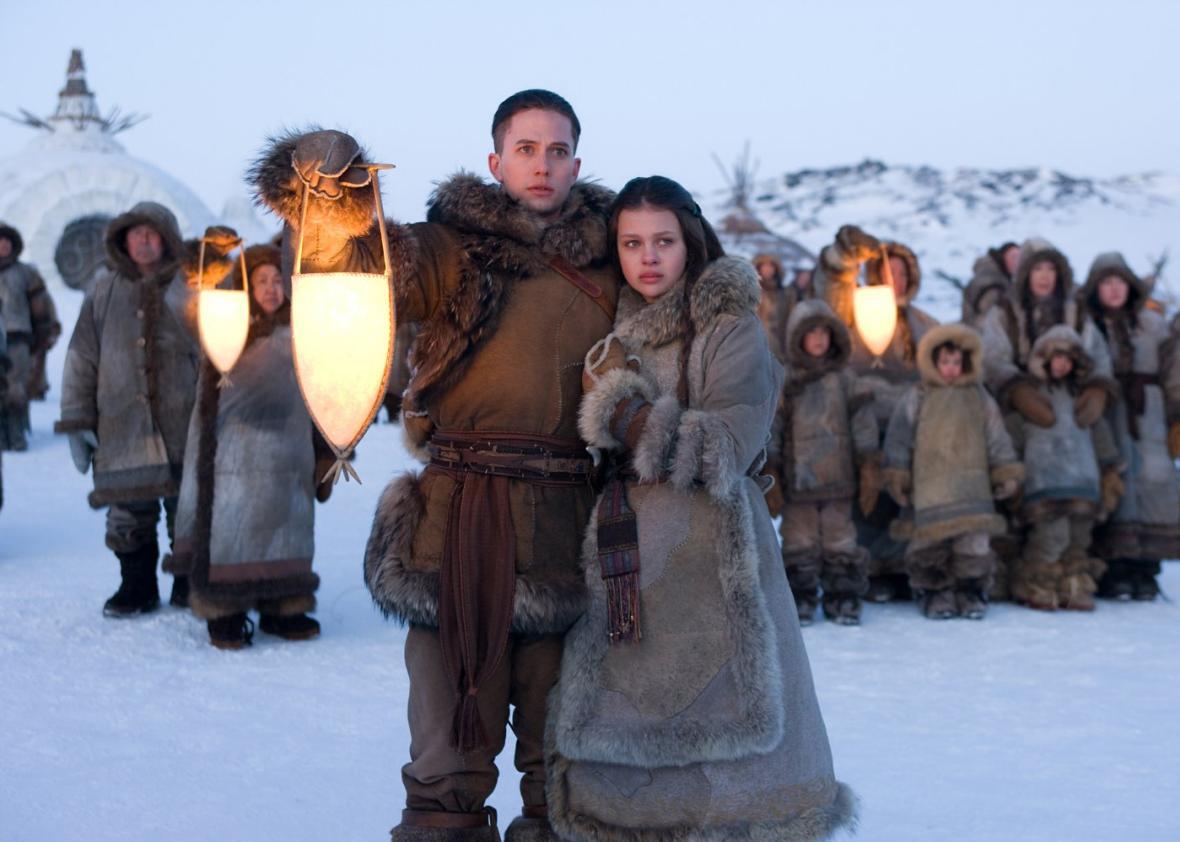
Paramount.
The argument: Fine, so diversity is important. You are definitely on board with diversity. In fact, if people would just look past the white leads of your movie and focus on the supporting characters, they might realize that you are one of the good guys, someone who understands the importance of and champions representation. You may have cast a white actor in a story with an Asian setting, but by doing so you opened up so many supporting roles to actors of different ethnicities.
Where we’ve heard it before:
- Finn Jones explaining that despite its problematic lead, Iron Fist is actually an inclusive show after all: “To be honest, this is one of the most diverse shows I’ve ever worked on. It’s got an amazing cast from all different backgrounds, playing all different types of roles.”
- M. Night Shyamalan calling his adaptation of The Last Airbender “the most culturally diverse tent-pole movies ever released, period,” after outcry over three out of four leads being white despite the visibly Asian-inspired source material. Shyamalan was also very proud of the fact that there were black people in the movie.
- Ghost in the Shell producer Steven Paul: “There [are] all sorts of people and nationalities in the world of Ghost in the Shell. We’re utilizing people from all over the world. … There’s Japanese in it. There’s Chinese in it. There’s English in it. There’s Americans in it. […] I don’t think it was just a Japanese story. Ghost in the Shell was a very international story, and it wasn’t just focused on Japanese; it was supposed to be an entire world.“
Why it isn’t convincing: Not to Blame the Industry, but part of the reason this argument doesn’t hold up is because there are so few leading roles for Asian actors. Sure, having an international cast is great but not if it comes at the expense of a consistently underrepresented group in Hollywood. And isn’t it a little strange that these international casts are all centered around white people?
Bonus:
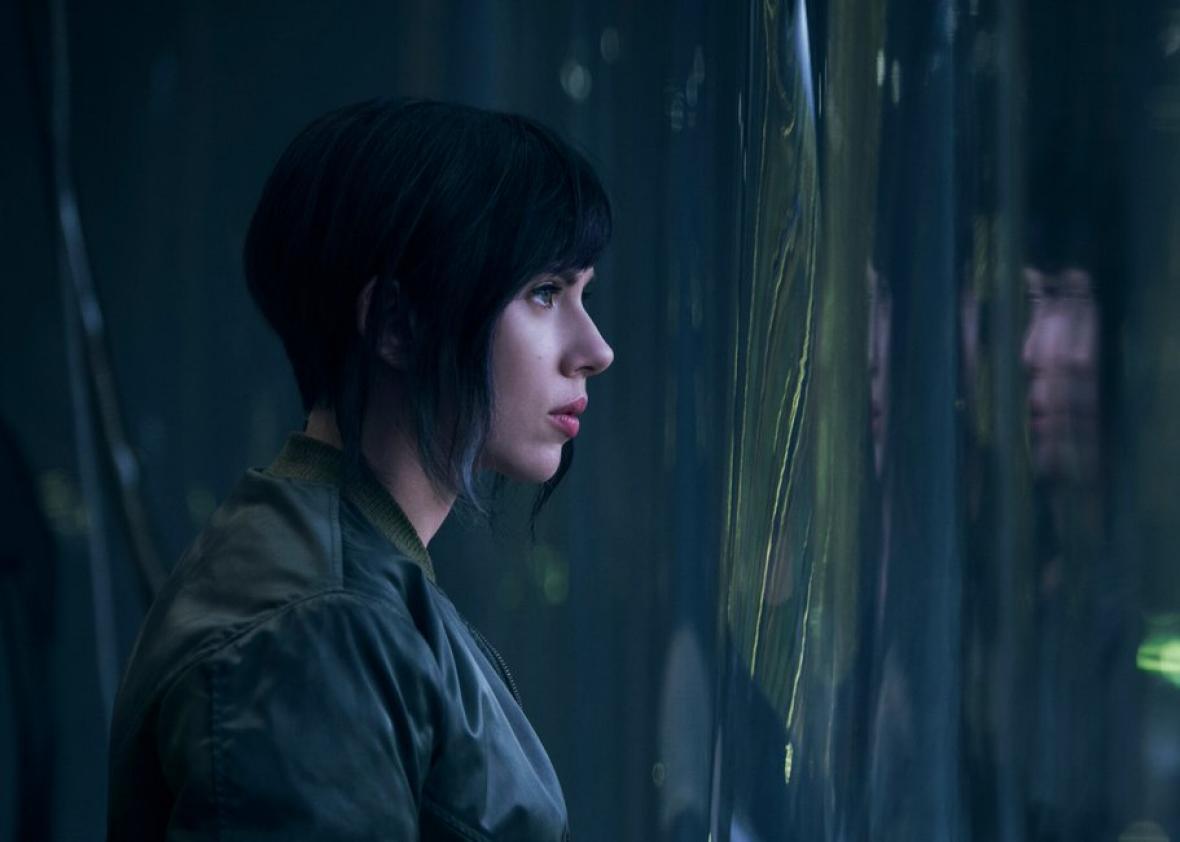
Paramount Pictures
The argument: Fine, so your lead is admittedly white, while people of color are regulated to supporting roles, but hey, look how many women there are in your show. Does anyone realize how rare it is for women to find substantial roles in Hollywood? Glass ceiling! Lean in! Girl power!
Where we’ve heard it before:
- Doctor Strange’s writer also praising the casting as pro-women: “Tilda is an instance of us taking a male role and putting a woman in it, which I think the film badly needed.” Swinton seconded this in an email exchange with Margaret Cho.
- Zoe Saldana on accepting the role of the darker-skinned Nina Simone in the biopic Nina on the grounds that she helped a female-drive script get produced: “Do I continue passing on the script and hope that the ‘right’ black person will do it, or do I say, ‘You know what? Whatever consequences this may bring about, my casting is nothing in comparison to the fact that this story must be told.’ ” [See also: Blaming the Industry]
- Scarlett Johansson, who plays the ostensibly Japanese Major in the upcoming Ghost in the Shell adaptation, responding to a question about diversity by pointing out that it’s a rare opportunity for an actress to be able to star in a female-fronted franchise.
Why they aren’t convincing: Yes, it’s difficult for women in general to find substantial roles in Hollywood, and better female representation is a worthy goal. But you know who has it hardest in that industry? Women of color. Calling Tilda Swinton’s casting a victory for female representation doesn’t take into account that that victory would have been a victory for women and people of color had the production gone with an Asian actress as they had first considered doing. In social justice circles, this lack of consideration for others’ struggles is known as “white feminism.” In non–social justice circles, it’s known as “being kind of a dick.”
5. “Actually, We Were Shattering Stereotypes”
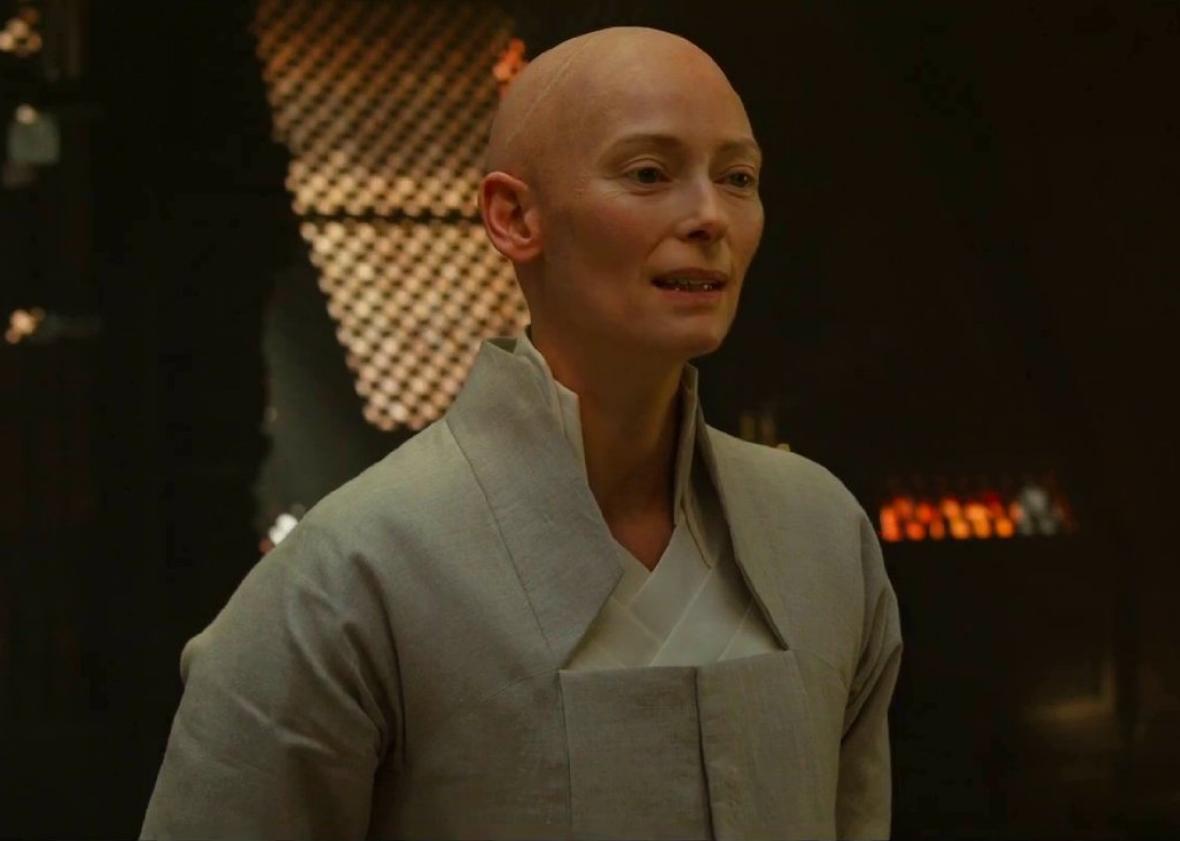
Marvel Studios
The argument: This is all just a big misunderstanding. True, you did cast a white actor in a role that some would say should have gone to a person of color. But that was in the name of sensitivity! You were trying to avoid offending people by not putting a person of color in a role that might be deemed stereotypical (or that definitely was stereotypical in the movie’s source material). If you hadn’t whitewashed the role, people would just be even more angry at an offensive depiction of a minority.
Where we’ve heard it before:
- Joe Wright explained casting Rooney Mara as Pan’s Tiger Lilly because he worried about the message he’d send by having a Native American tribe in the movie
- Doctor Strange director Scott Derrickson on why he cast Tilda Swinton as the Ancient One, who is an Asian man in the comics: “In this case, the stereotype of [the Ancient One] had to be undone. I wanted it to be a woman, a middle-aged woman. Every iteration of that script played by an Asian woman felt like a ‘Dragon Lady.’ I’m very sensitive to the history of ‘Dragon Lady’ representation and Anna May Wong films. I moved away from that.”
- Star Trek Into Darkness screenwriter Bob Orci on why Benedict Cumberbatch was cast as Khan Noonien Singh, a Northern Indian Sikh character played in Wrath of Khan by Mexican actor Ricardo Montalbán: “Basically, as we went through the casting process and we began honing in on the themes of the movie, it became uncomfortable for me to support demonizing anyone of color, particularly any one of Middle Eastern descent or anyone evoking that.“
Why it isn’t convincing: Let’s accept in good faith that you’re being sincere when you say you want to avoid perpetuating an egregious stereotype. And yes, your source material was definitely offensive. But rewriting the character so that they are played by an actor of an entirely different race is at best, not a very creative solution, and at worst, just plain lazy. If you are trying to fix the sins of screenwriters past, why not instead expend a little thought and energy to give the existing character a more considered, nuanced update without changing his or her race?
6. Owning It
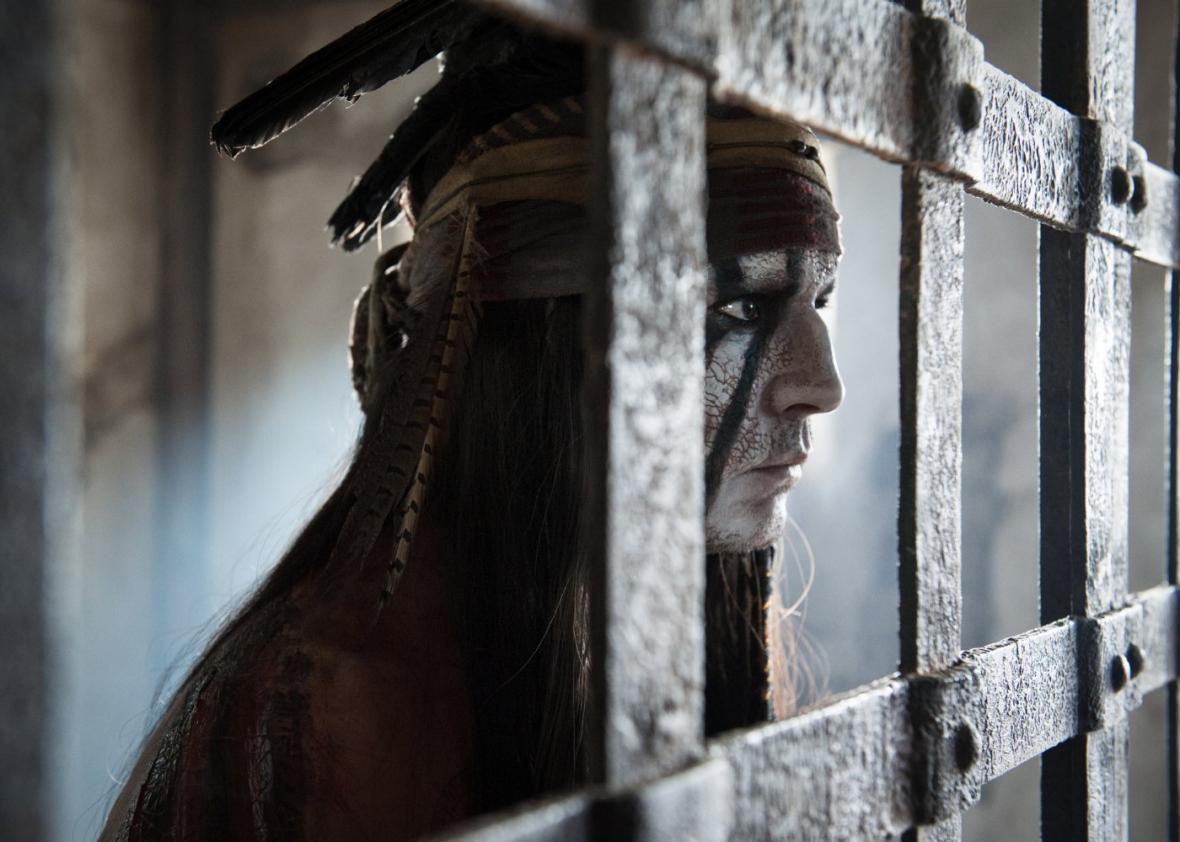
Peter Mountain/Disney Enterprises, Inc.
The argument: Well of course the casting is problematic. It wasn’t an accident. You did it on purpose.
Where we’ve heard it before:
- Finn Jones engaged in a Twitter conversation about Danny Rand: “There are a lot of characteristics in Danny which are problematic, that’s the point, rather than shy away from them we inspect them. It makes for a rich, intelligent, thought-provoking show.”
- Johnny Depp on playing Tonto with a clichéd broken-English accent: “It was a kind of a trick in a weird way to sort of suck [the audience] in, and then switch them around. So in a way, I had to embrace what is deemed as cliche for Tonto … in terms of speech pattern or whatever.”
Why it isn’t convincing: Sure, you meant to do that.
7. Acceptance
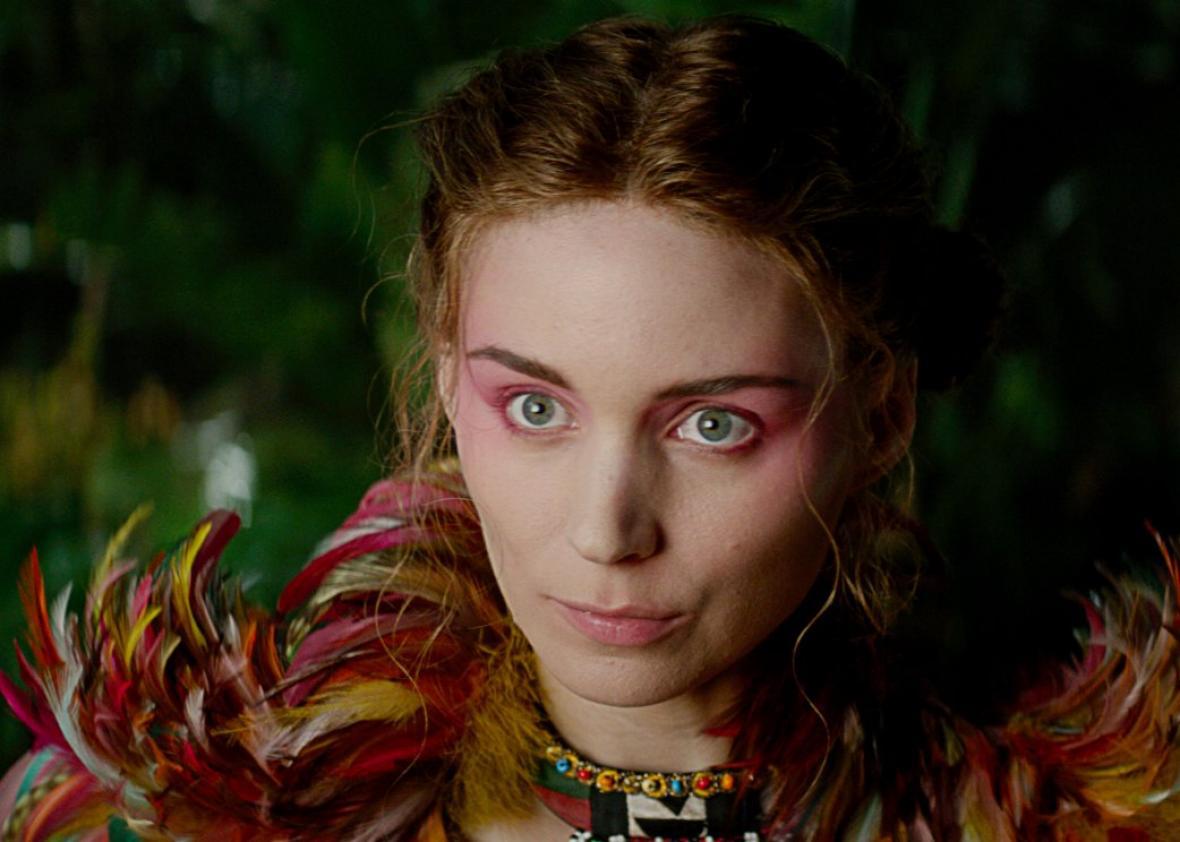
Laurie Sparham/Warner Bros. Entertainment
The argument: Mercifully, there isn’t any. You listened to fans’ and critics’ concerns, and while you might not necessarily agree with all of them, you do at least understand the reasons they are upset. What’s more, you’re going to stop being part of the problem and maybe even work on being part of the solution, whether that means giving a sincere apology and promising to do better, using your platform to promote more inclusive casting, or simply expressing regret for something that, in hindsight, was pretty problematic. It turns out, when you stop being defensive and simply acknowledge people’s concerns, it can go a long way toward calming a controversy. Some actors and filmmakers never reach this stage. But I have faith in you.
Where we’ve seen it before:
- Rooney Mara admitting that while Joe Wright’s intentions were honorable, Pan should not have had four blond, blue-eyed leads. ”I really hate, hate, hate that I am on that side of the whitewashing conversation. I really do. I don’t ever want to be on that side of it again. I can understand why people were upset and frustrated.”
- Lionsgate and Gods and Egypt director Alex Proyas offering rare and, more importantly, straightforward apologies for the film’s all-white cast in spite of the Egyptian setting, without offering any weak justifications for the casting.
- Transparent’s Jeffrey Tambor using his Emmys win as an opportunity to ask the industry to give trans talent a chance: “I would very much like to be the last cisgender male playing a transgender female. I think we are there now.”
